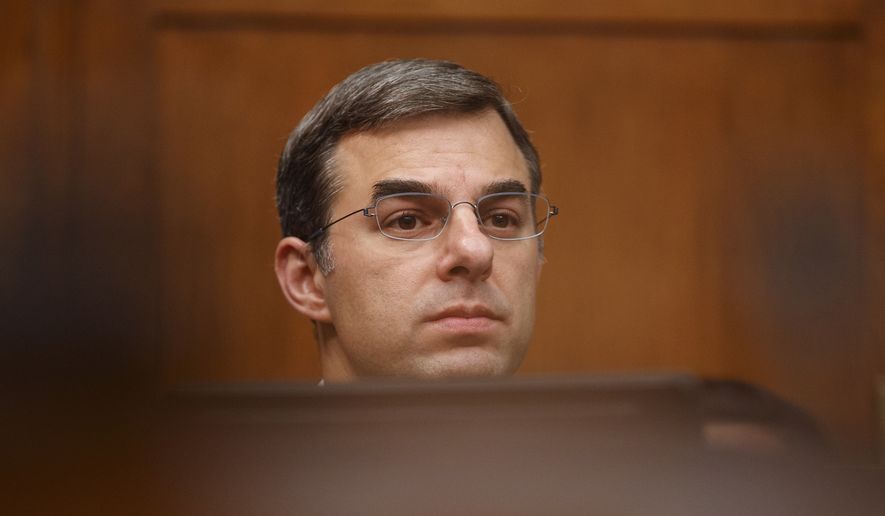A defiant Rep. Justin Amash tripled down Thursday on his declaration that President Trump should be impeached, going on a tweetstorm outlining his case that Mr. Trump has violated the public trust and rebutting some of the arguments made by fellow conservatives.
The Michigan Republican, the first member of his party to call for impeaching Mr. Trump, detailed over the course of 20 tweets how special counsel Robert Mueller’s report has convinced him of “a consistent effort by the president to use his office to obstruct or otherwise corruptly impede the Russian election interference investigation because it put his interests at risk.”
“Some of the president’s actions were inherently corrupt. Other actions were corrupt — and therefore impeachable — because the president took them to serve his own interests,” he wrote near the end of the tweetstorm.
Since Mr. Amash broke party ranks last week, he has been insulted by Mr. Trump and denounced by the conservative House Freedom Caucus, but he has twice defended himself at length on Twitter.
In Thursday’s tweetstorm, he specifically rebutted a point made by among other conservative lawmakers, Sen. Rand Paul of Kentucky and Rep. Jim Jordan of Ohio, that Mr. Amash had long been critical of the use of secret courts and warrantless searches such as those used in the Mueller probe.
The investigation was legitimate though, and now Congress must deal with what is known, he said.
“Some excuse Trump’s conduct based on allegations of issues with the investigation, but no one disputes the appropriateness of investigating election interference, which included investigating contacts between the Trump campaign and people connected to the Russian government,” Mr. Amash wrote.
In Thursday’s tweetstorm, Mr. Amash outlined six examples of Mr. Trump using his office to impede the Mueller probe by firing, threatening to fire or leaning on subordinates.
The undoubted fact that a president’s constitutional powers include hiring and firing executive-branch officials doesn’t mean — as, among others, Harvard Law School professor Alan Dershowitz has argued — that they can’t be impeachable offenses.
If done for a corrupt purpose, Mr. Amash argued, they can, noting as an example the selling of offices.
“The president has an obligation not to violate the public trust, including using official powers for corrupt purposes. For instance, presidents have the authority to nominate judges, but a president couldn’t select someone to nominate because they’d promised the president money,” he wrote.
“This principle extends to all the president’s powers, including the authority over federal investigations, federal officials, and pardons,” Mr. Amash said.
Worst of all, Mr. Amash implied, is that much of what Mr. Trump did in exercising his legitimate powers was merely to serve his private interest.
“The president has authority to fire federal officials, direct his subordinates, and grant pardons, but he cannot do so for corrupt purposes; otherwise, he would always be allowed to shut down any investigation into himself or his associates, which would put him above the law,” he concluded.
• Victor Morton can be reached at vmorton@washingtontimes.com.




Please read our comment policy before commenting.